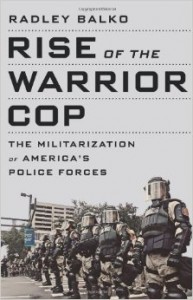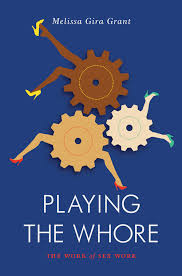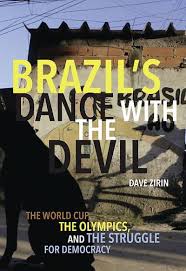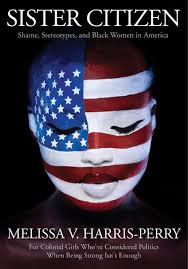#Newsfail
Written by Ashley Kelmore, Posted in Feminism, Politics, Reviews
Five Stars* (see update below)
There’s an awesome podcast out there called Citizen Radio, and it is amazing. The hosts are a comic and journalist, respectively, who record at their home and talk about news that either doesn’t get covered or that gets covered in ridiculous ways. There is a ton of swearing, a lot of joking, some bizarre recurring characters (“Republican Baby,” for example), and a crap ton of actual, honest, news. Citizen Radio is independent media that seeks the truth without being worried about what sponsors are going to think. It’s funding wholly by members like me, but is available to everyone for free.
What does that have to do with this book? Well, this book is written by the hosts of Citizen Radio. It’s a progressive look at the ways in which the news fails: fails to tell us the truth, fails to cover the stories that matter, and fails to do what journalism should do. It’s an easy read (as in, it’s written conversationally; the topics themselves are not in any way light), and organized into general topics that are illustrated with examples of the ways the news has failed to cover the topics properly. The authors address class war, sexism, LGBT rights, gun control (or “massacre prevention,” as they wisely call it), drug policy and foreign policy. The chapters have fantastic titles like “We Know You Smoked Weed in College, Asshole: How the War on Drugs Is Destroying This Country.”
The book is great; when it ended I wished there were more for me to read. I wish they could have taken on even more topics – I feel like there’s enough failure of the media out there on such a wide range of topics that they could write at least one more book, if not two. They point out the problem with presenting “both sides” when there aren’t actually two reasonable sides. A good example of this is climate change. When the vast, vast majority of scientists find truth in something, it doesn’t make sense to have one climate change denier on to debate one scientist. That’s irresponsible. Of course, as Kilkenny and Kilstein point out, scientists (or experts on the issues) are rarely even invited to contribute to the discussions. Instead of the experts on an issue, or those directly impacted by an issue – say, reproductive health – being invited on, you get a panel of older white men. No white women, no women of color, just old white politicians talking about putting an Aspirin between a woman’s knees as effective birth control.
The book is filled with rough language, and includes a smattering of anecdotes from the authors’ lives. Much like their podcast, the book makes me laugh, makes me angry, and motivates me to take action. I read a more diverse array of topics now than I did before I found their podcast. I’ve always been what I’d describe as liberal; now I know that a better term to describe my beliefs is progressive. While some might pass this book off as preaching to the choir, the reality is that while much of what they say might be more radical than the average liberal’s thinking, they back it all up. They provide support for those beliefs that you might have been thinking, but haven’t seen supported when you watch CNN (or MSNBC, because really that station isn’t nearly as liberal as people think).
If you care about politics, journalism, the media, or any of the topics covered in this boo, I strongly urge you to pick it up. And next time you’re on iTunes, or Stitcher, please check out Citizen Radio.
*Feb 28, 2017: Yesterday some very concerning items came out about Mr. Kilstein. Multiple women have shared that he emotionally manipulated and abused them. That is horrifying to hear; Ms. Kilkenny (who split with Mr. Kilstein prior to these revelations) will be continuing Citizen Radio without him.




